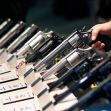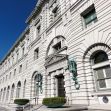The State of California owns the California Exposition and State Fair (Cal Expo) fairgrounds near Sacramento. Because the State owns the land, the plaintiff, a man who sought to distribute his religious tokens there, thought he could do so because state-owned land is normally classified as a public forum. public forum is an area constitutionally designated for the free exercise of speech. California courts and this Ninth Circuit opinion, however, permit non-free speech areas to exist within traditional public forums because they are “permissible regulations of the time, place, and manner of speech.”
Plaintiff/appellant Burt Camenzind, an Evangelical Christian, wanted to distribute religious tokens, described as coins with Biblical verses in Hmong and other languages, to those who attended the Sacramento Hmong New Year Organization’s (SHYNO) Festival at Cal Expo. This is an annual, private event that goes on for four days and normally attracts some 30,000 visitors. The Festival took place on half of the fenced-in area of the 800-acre fairgrounds.
Entry to the Festival, located in the fenced-in area, required tickets, and Camenzind purchased one so he could pass out his tokens. But when he tried to do so, police officers removed him from the area and all of the fairgrounds. He argued that “effective communication requires one-on-one conversations that he did not believe were possible from the designated zones.” When police ejected him, he sued in Sacramento Superior Court arguing Cal Expo had violated his right to free speech under both the First Amendment of the U.S. Constitution and the Free Speech Clause of the California Constitution.
Cal Expo removed the case to federal court, specifically the U.S. District Court for the Eastern District of California, where Presiding District Judge Morrison C. England, Jr., granted summary judgment to Cal Expo holding that the Cal Expo Guidelines did not violate Camenzind’s right to free expression under either federal or state law. The Ninth Circuit affirmed his ruling in a unanimous decision authored by Justice Gabriel P. Sanchez, with a partial dissent by Ninth Circuit Judge Lawrence VanDyke on October 31.
Sanchez’s opinion clarified the boundaries and limits of Free Speech Zones under both the federal and California constitutions when the property is rented for privately organized events. The Ninth Circuit’s ruling clarified that the “unticketed portions” of Cal Expo are indeed public forums, but the interior, ticketed areas are not. Thus, the opinion determined that Cal Expo’s division of its property was a “valid regulation” of Camenzind’s speech.
The Justice explained the routine patronage of Cal Expo, which hosts the California State Fair during the summer months, is available for rent by private parties for the remainder of the year. Rental organizations normally require patrons to purchase tickets to their activities, and security is usually provided by the Cal Expo Police Department.
Cal Expo has published specific Free Speech Activity Guidelines for activities within its grounds. These include prohibitions on distributing leaflets, gathering petition signatures, and picketing outside “purchased exhibit space.” In addition, free speech activities in parking lots or other areas outside its fences are also restricted in order to prevent events that could cause injuries. The Guidelines define Free Speech Zones as six-foot square areas that are available at no charge on a first-come, first-served basis.
The Ninth Circuit’s opinion was focused on the constitutionality of the Cal Expo Guidelines. While recognizing “This country’s “profound commitment to the principle that debate on public issues should be uninhibited, robust, and wide-open,” their opinion also explains that several factors limit that commitment. First, the nature of the forum must be determined because its constitutionality will differ depending on where the disputed speech occurs.
Private property affords no free speech rights, while government-owned property does, depending on the specific location of the desired speech. Sanchez explained that the plaintiff sought to challenge the Guidelines that govern speech both within and outside the fairgrounds, which are separated by a fence and thus “governed by different policies.” Both U.S. Constitutional rulings and California State rulings were covered in the opinion.
First came a discussion of the First Amendment to the U.S. Constitution that gives special attention to areas that by “tradition or by government fiat have been devoted to assembly and debate.” The government may “impose reasonable time, place, and manner restrictions” on these areas, whether designated or traditional, “but content-based restrictions must be viewpoint neutral and satisfy strict scrutiny review.” Camenzind argued that Cal Expo is “analogous to a public park,” and thus deserving of strict scrutiny. The Ninth Circuit disagreed, finding that the enclosed, fenced-in portions of the fairgrounds are not a traditional public forum.
The Ninth Circuit also ruled that under California’s Speech Clause, the area outside the fence is a public forum. This clause states that “Every person may freely speak, write and publish his or her sentiments on all subjects, being responsible for the abuse of this right. A law may not restrain or abridge liberty of speech or press.” The opinion goes on to say that “California Courts have developed an extensive body of case law addressing whether the government regulation of speech in certain locations violates” that clause. Under state law, for example, shopping centers are not public fora.
After reviewing the state case law, the Ninth Circuit concluded that the “government’s actions were reasonable and not aimed at suppressing Camenzind’s viewpoint.” Dissenting Judge VanDyke said that the case should be remanded for “further factual development” that would “properly evaluate whether Cal Expo is a public forum” during the Hmong New Year Festival under California law.






